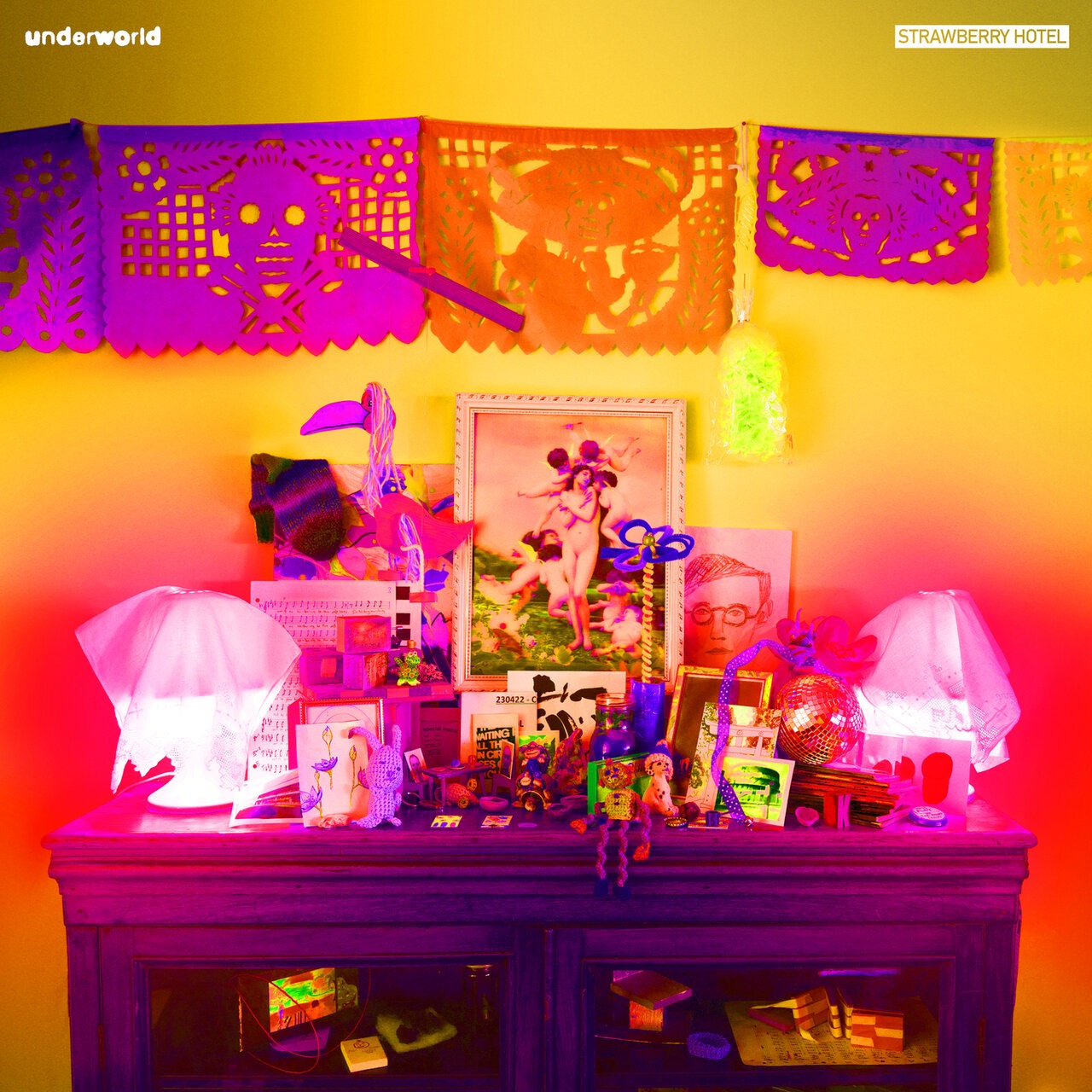In the world of electronic music, Underworld has been synonymous with innovation and evolution for decades. The British group, rooted in the early ’80s, has consistently reinvented itself over the years. From the new wave band Freur to the techno revolutionaries they later became, Karl Hyde and Rick Smith have left an indelible mark on the electronic music scene. With their new album, “Strawberry Hotel,” their first release in five years, the duo returns to a sound palette that looks both forward and backwards.
The production, led by Underworld founder Rick Smith, reflects years of craftsmanship. Smith, who made his mark with work on the soundtrack for Trainspotting 2 and his role as musical director for the 2012 Olympics opening ceremony, brings this cinematic flair prominently to “Strawberry Hotel.” However, where this theatrical approach often led to memorable highlights in the past, this new work sometimes veers toward excess. Take, for example, “Denver Luna,” a track that bursts from the speakers with an undeniably dancefloor-ready punch but also struggles with an almost overwhelming cathedral-like grandeur. This track embodies the tension the entire album faces: technically impressive, but sometimes at the expense of subtlety and nuance.
“Techno Shinkansen” might be the album’s high point, where modern production methods fuse with a “Pleasure Dome”-like nostalgia that directly references Underworld’s rich history. Yet, even here, a certain predictability in the composition ultimately detracts from the track. A noticeable “camp” factor runs throughout the album. With tracks like “And the Colour Red” and the Netherlands-referencing “King of Haarlem,” one wonders whether this is tongue-in-cheek humour or an unintended journey back to the late ’80s. This retro aesthetic sometimes feels refreshing, but more often, it feels confusing.
The fifteen-track album finds its strongest moments in the shorter, more focused compositions. Particularly in the first half, the album engages with its dynamic buildup. Unfortunately, the second half drifts into a wandering soundscape where a few strategically placed, intense tracks would have been welcome. “Strawberry Hotel” is an album that intrigues the first listen but reveals more weaknesses with repeated exposure. The production is undeniably skilled, and the eighties vibe will strike a nostalgic chord for many, but as an artistic statement, it remains too inconsistent. What remains is an enjoyable but unremarkable addition to Underworld’s otherwise impressive discography.
While the album might gain some ground with multiple listens, it lacks the urgency and innovative spirit that define Underworld’s best work. For fans of the genre, there is enough to enjoy, but those looking for the groundbreaking electronic music that earned the group its reputation may be better off revisiting their earlier work. With that conclusion, a score of six remains the album’s rating. No high-flyer here. (6/10) (Underworld/Virgin Music)

